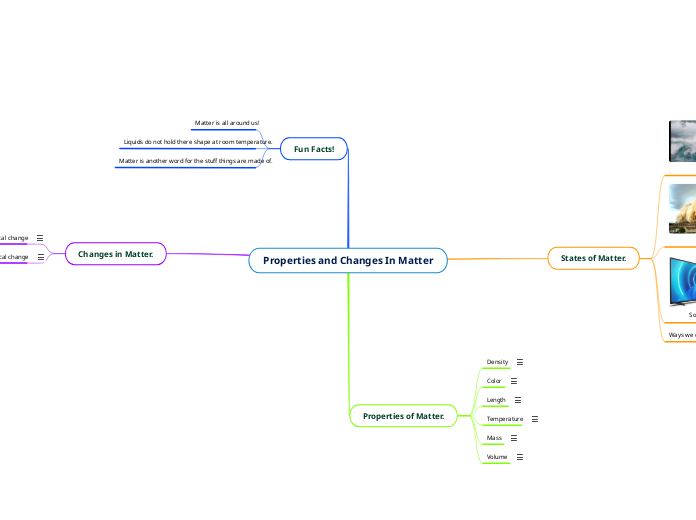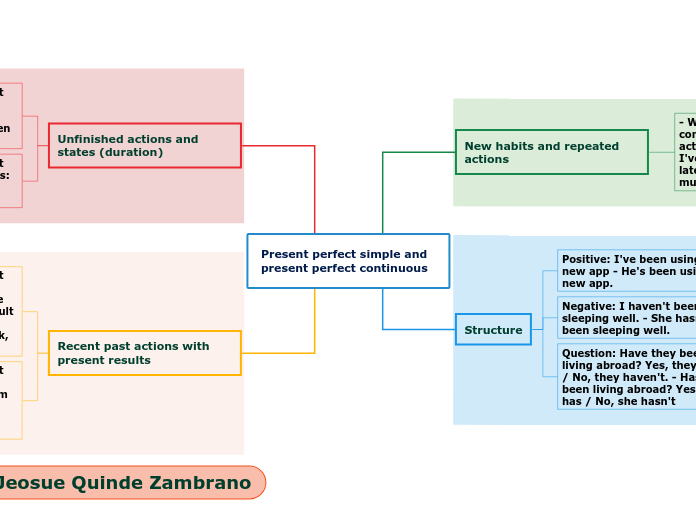Properties and Changes In Matter
Changes in Matter.
Chemical change
A type of change in which a new substance is formed.
Physical change
A type of change in which a new substance is NOT formed.
Fun Facts!
Matter is another word for the stuff things are made of.
Liquids do not hold there shape at room temperature.
Matter is all around us!
Properties of Matter.
Volume
Volume refers to the amount of space the object takes up.
Mass
Mass is the amount of matter or substance that makes up an object.
Temperature
Temperature is the measure of the hotness and coldness of an object with reference to some standard value.
Length
Length is a measure of how long an object is or the distance between two points.
Color
The color of something is the appearance that it has as a result of the way in which it reflects light.
Density
Density is a measure of how heavy something is compared to its size.
States of Matter.
Ways we can measure them.
We can measure matter by its volume or its mass. We can also measure it by its temperature or its density.
Solid
A solid is anything that has weight or mass and takes up space. A solid has its own shape and volume, partials are packed close together, and vibrate in place. Liquid has volume but takes the same shape of its container.
Gas
Gas is one of the three main states of matter. Gas is made up of atoms, tiny particles that make up molecules, and molecules that move faster and further away as compared to other states of matter, which enables gas to fill a container evenly.
Liquid
Liquids have a definite volume but not a definite shape. The volume of a liquid can be measured and generally is expressed in units of liters. The shape of a liquid changes depending on the vessel containing it.









